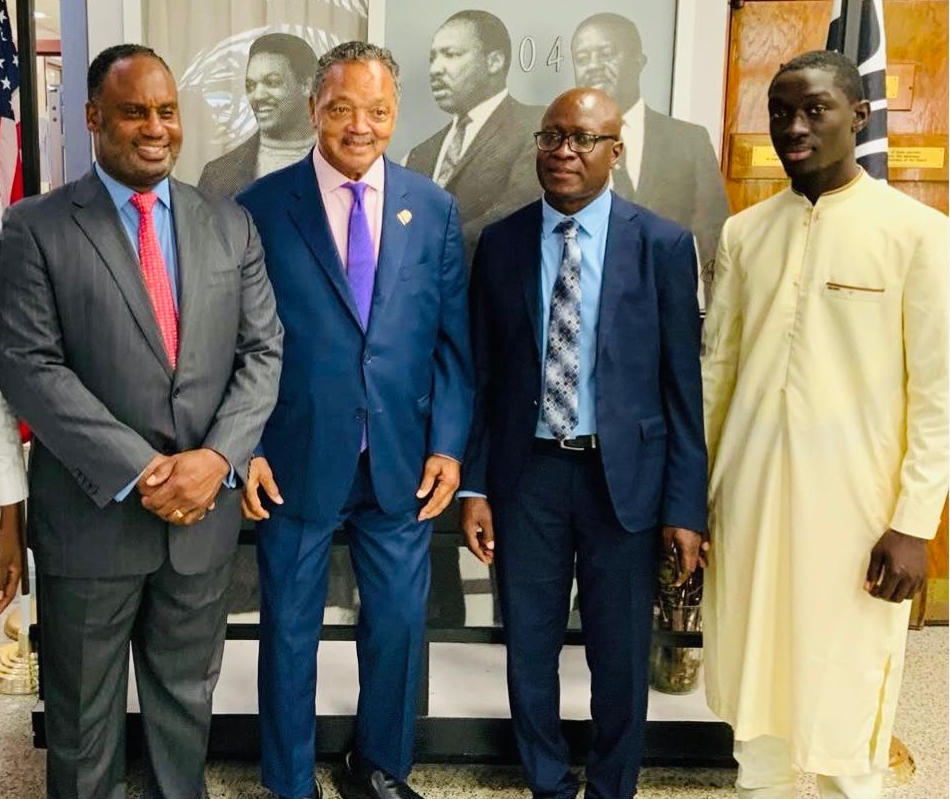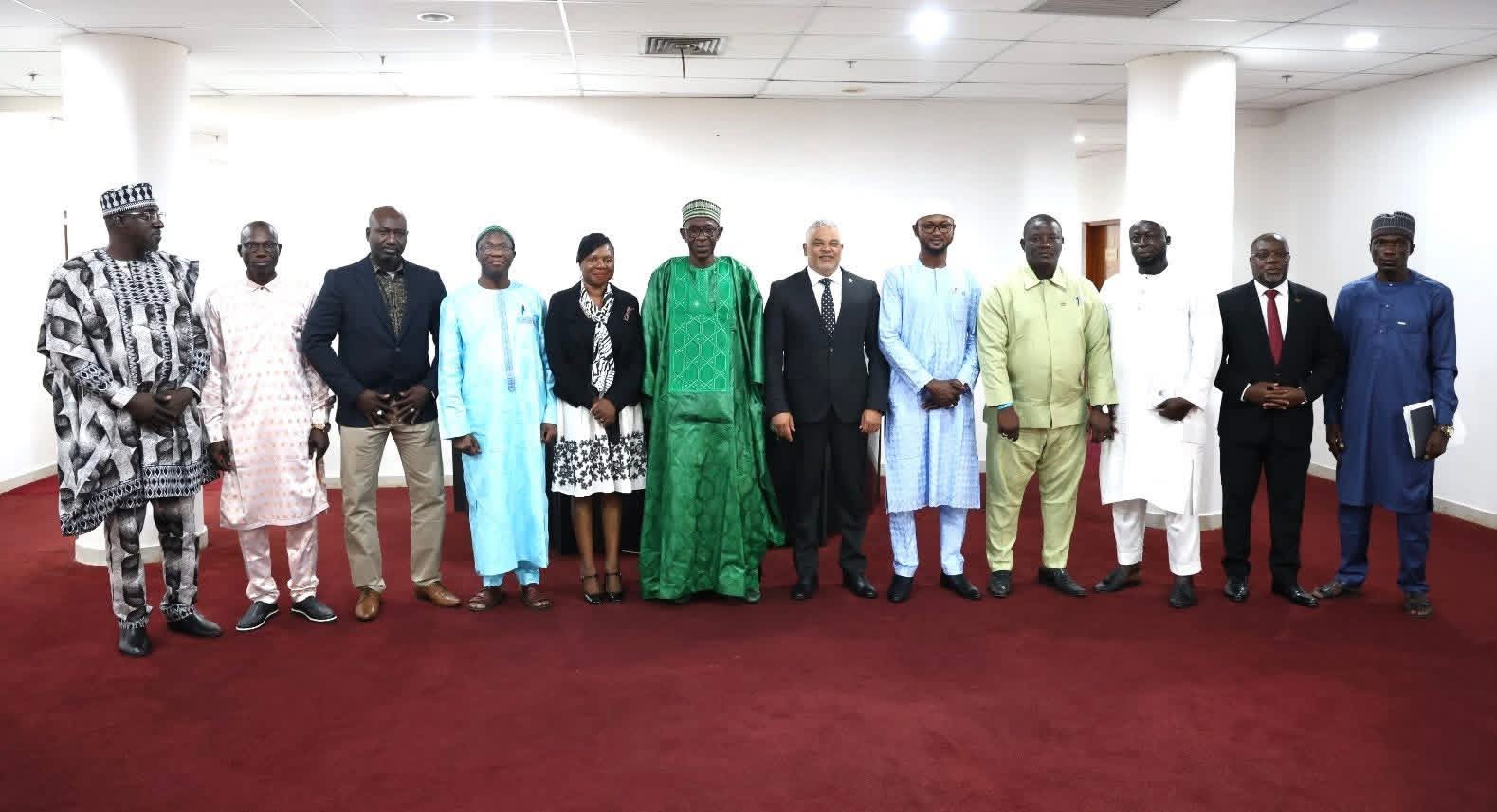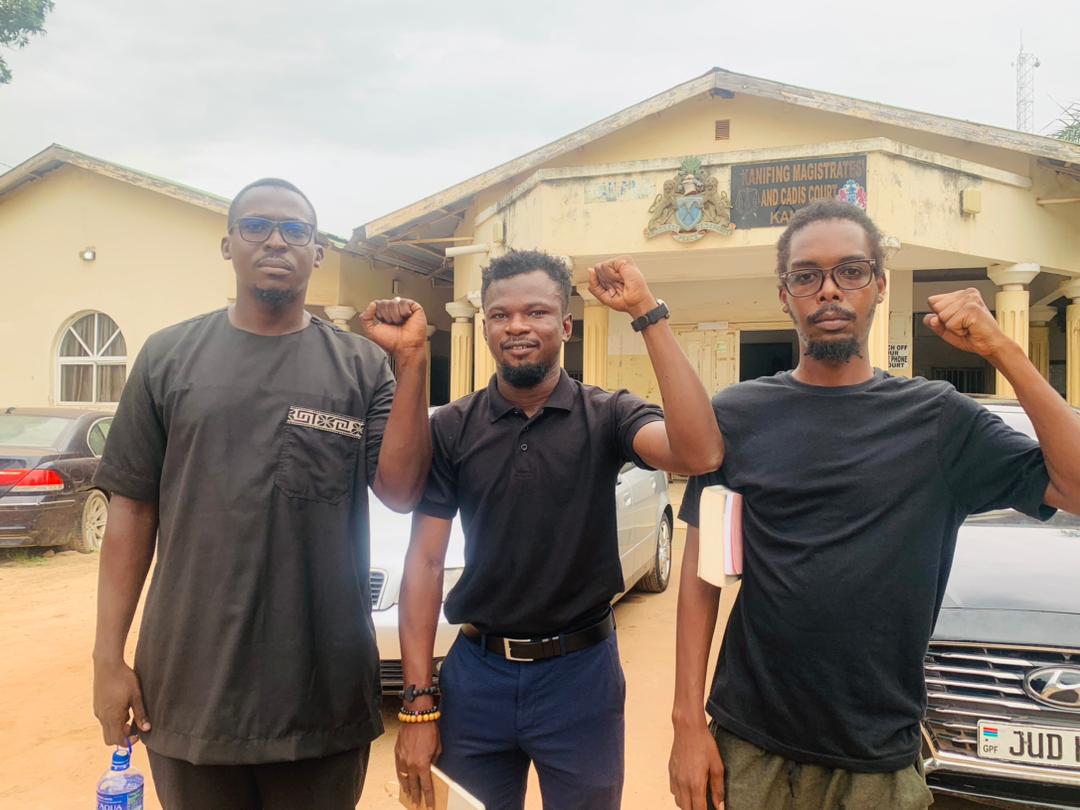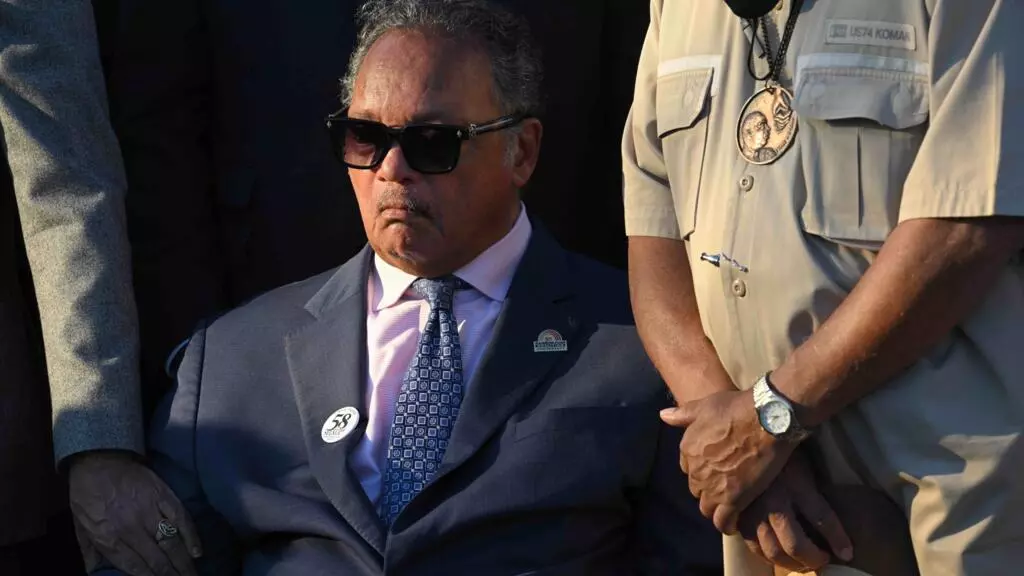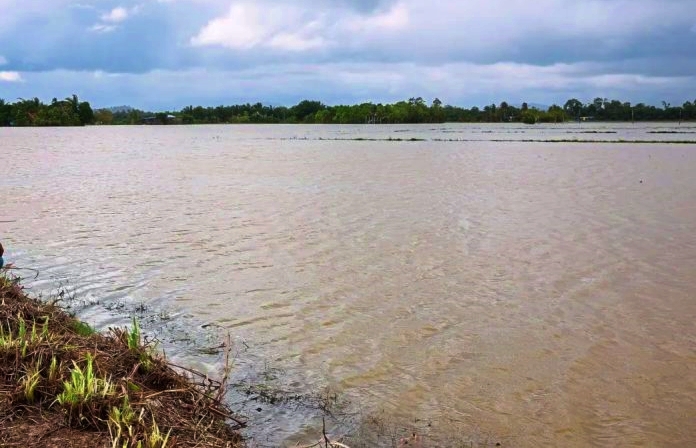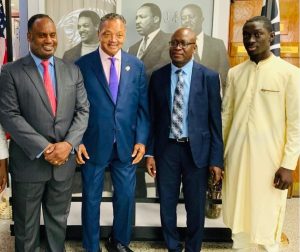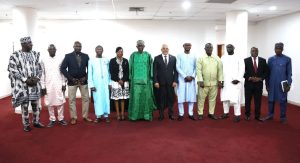Gambiaj.com – (URR, The Gambia) – Governor Samba Bah of The Gambia’s Upper River Region (URR) has led a team of officials, including the National Disaster Management Agency (NDMA), security heads, and local authorities, to assess the severe damage caused by recent floods that have ravaged key rice fields in the region.
The heavy rains, which have submerged expansive rice fields, including those in the Sutukoba and Cosemar clusters, have left a trail of destruction and put the livelihoods of farmers in jeopardy, heightening concerns over food security in the area.
During the visit to the flood-affected regions, Governor Bah expressed deep concern over the situation. In Sutukoba, the team observed that 14 hectares of cultivated wetland had been completely inundated, leaving farmers devastated. According to Baa Arfang Jabbi, secretary of the local rice farmers’ association, and Mady Jatta, the association’s chairman, more than 40 households who rely on these rice fields have suffered near-total crop losses. They appealed to the government and humanitarian agencies for immediate assistance to help the affected farmers recover from the disaster.
In Cosemar, hundreds of hectares of rice fields were also found submerged. NDMA official Hudu E.M. Colley highlighted the floods as a stark reminder of the increasing impact of climate change, warning that continued heavy rains could completely wipe out any possibility of harvests, plunging the region deeper into a food security crisis.
“If the rains persist, the destruction of these rice fields will threaten the food security of the affected communities,” Colley remarked. “The situation is dire, and it will require coordinated efforts from the government and other stakeholders to address the looming food insecurity at the household level.”
Samba John, the regional agriculture director, described the damage as “frustrating” for the farmers who had invested significant resources into rice cultivation, only to witness their hard work washed away. He called for urgent action to assist farmers in transitioning from rainy-season production to dry-season farming, which could offer a path to recovery.
For the families in these farming communities, the floods have come at a critical time, as many of the rice crops were nearing harvest. The devastation has left many farmers, like Ibrahima Suso from Cosemar, feeling despondent. Suso noted that over 300 households from eight villages depend on these rice fields for their livelihoods, but now face unprecedented challenges with no immediate solutions in sight.

“We invested everything we had, thinking that at the end of the season we would be able to support our families,” Suso lamented. “But now it seems all our efforts have been in vain.”
Governor Bah acknowledged the gravity of the situation and urged both farmers and authorities to heed climate forecasts and adopt more resilient farming practices. Officials reiterated the importance of early warning systems and disaster preparedness to mitigate the impacts of such extreme weather events in the future.
The NDMA is expected to compile a detailed report of the flood damage, which will guide the government’s next steps in providing relief and support to the devastated communities. Meanwhile, urgent appeals for humanitarian intervention have been made to address the immediate needs of the affected households.
As the region grapples with the aftermath of the floods, the scale of destruction continues to underscore the vulnerability of rural farming communities to the growing threat of climate change.



